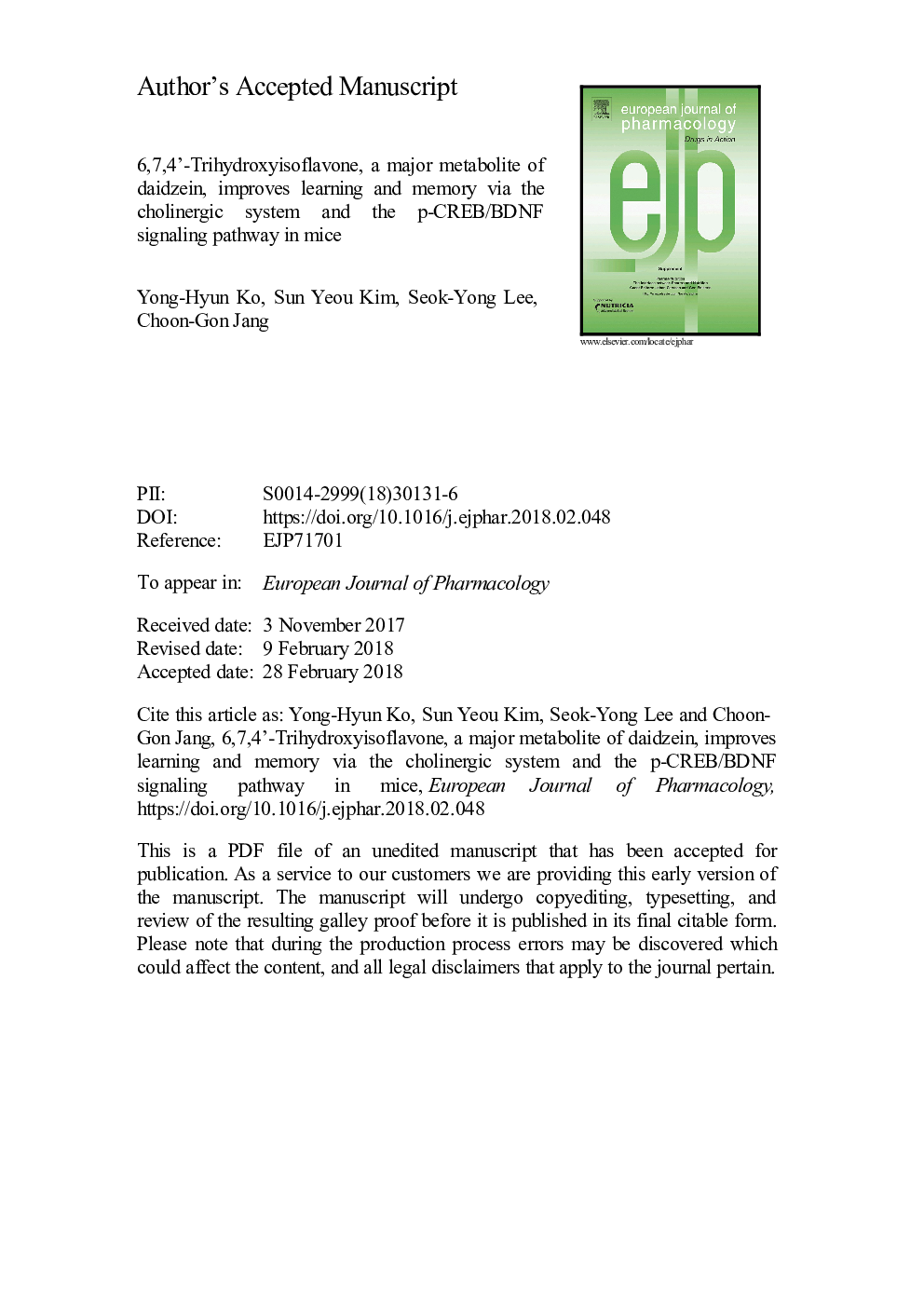| Article ID | Journal | Published Year | Pages | File Type |
|---|---|---|---|---|
| 8529144 | European Journal of Pharmacology | 2018 | 32 Pages |
Abstract
Daidzein is one of the major isoflavfones found in soy food and plants. Following ingestion, daidzein is readily converted to hydroxylated metabolites in the human body. 6,7,4â²-Trihydroxyisoflavone (THIF), one of the metabolites of daidzein, has several pharmacological activities, including anti-cancer and anti-obesity properties. However, no reports exist on the effects of 6,7,4â²-THIF for cognitive function in mice. The present study aimed to investigate the effects of 6,7,4â²-THIF against scopolamine-induced learning and memory impairments using the Y-maze and passive avoidance test. A single administration of 6,7,4â²-THIF significantly improved scopolamine-induced cognitive dysfunction in these in vivo tests. Moreover, treatment with 6,7,4â²-THIF alone enhanced learning and memory performance in the same behavioral tests. Molecular studies showed that 6,7,4â²-THIF significantly inhibited acetylcholinesterase and thiobarbituric acid reactive substance (TBARS) activities in the hippocampus of scopolamine-induced mice. In addition, immunohistochemistry and Western blot results revealed that 6,7,4â²-THIF significantly increased brain-derived neurotrophic factor (BDNF) and phosphor cAMP response element binding (CREB) in the hippocampus of mice. Taken together, these findings suggest that 6,7,4â²-THIF improves cognitive dysfunction induced by scopolamine and enhances learning and memory by activation of the cholinergic system and the p-CREB/BDNF signaling pathway in mice.
Keywords
Related Topics
Life Sciences
Neuroscience
Cellular and Molecular Neuroscience
Authors
Yong-Hyun Ko, Sun Yeou Kim, Seok-Yong Lee, Choon-Gon Jang,
